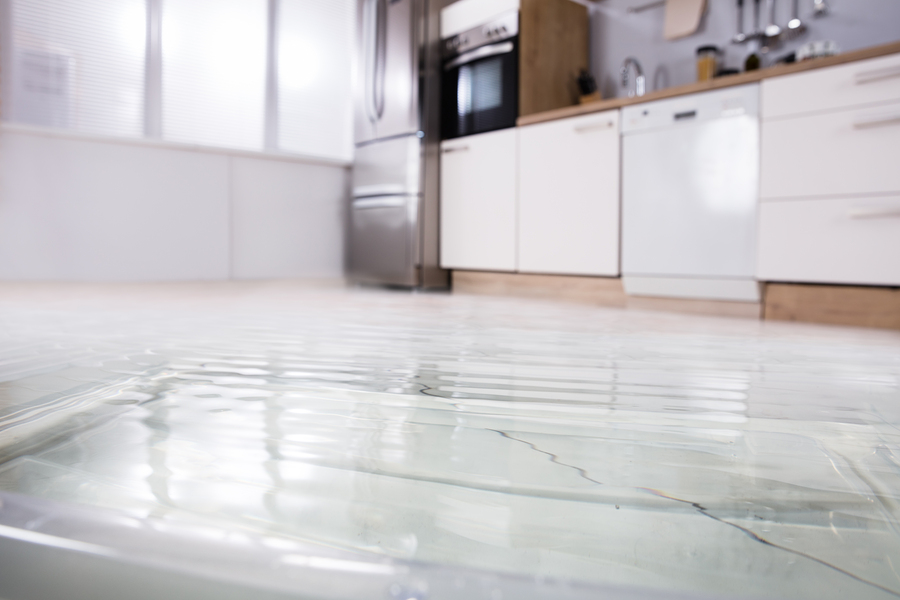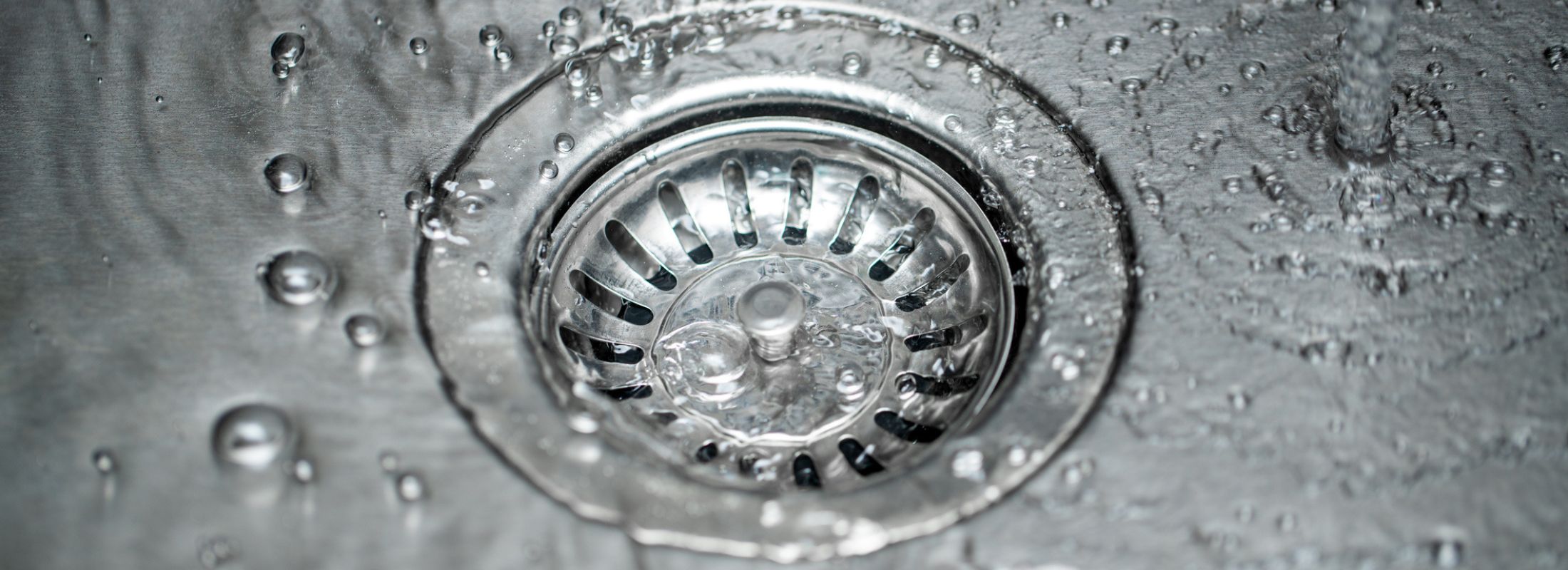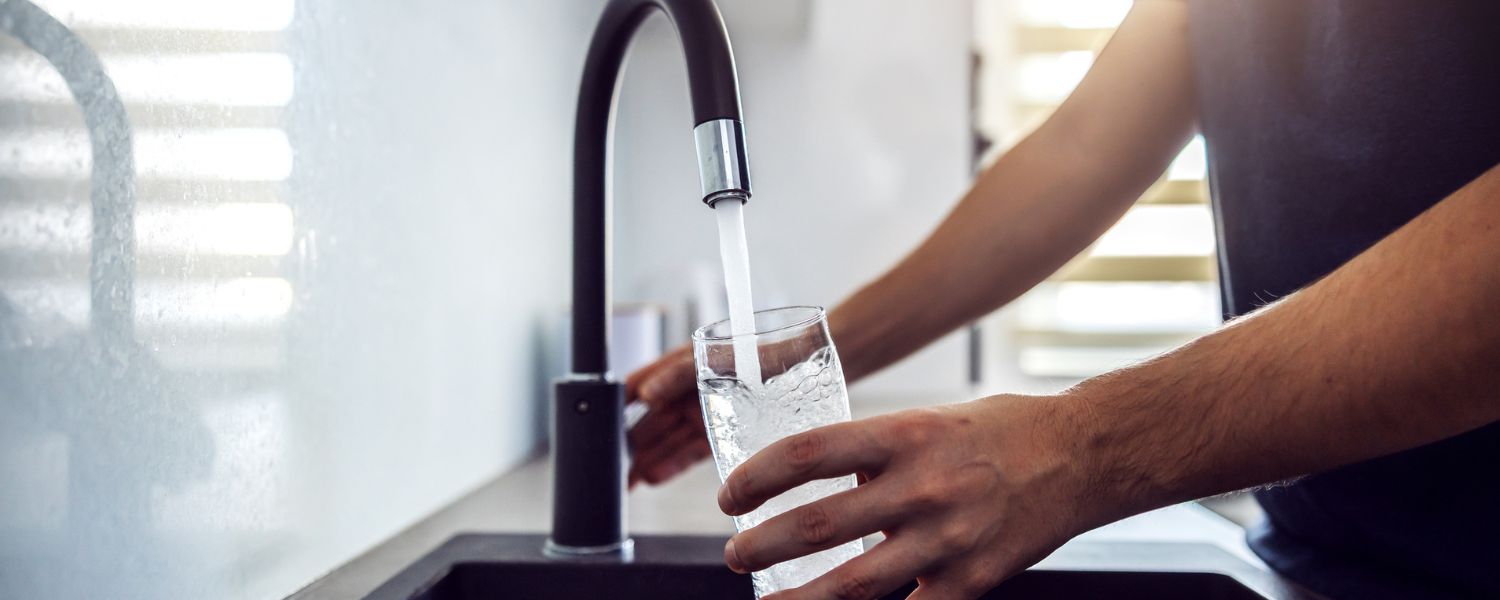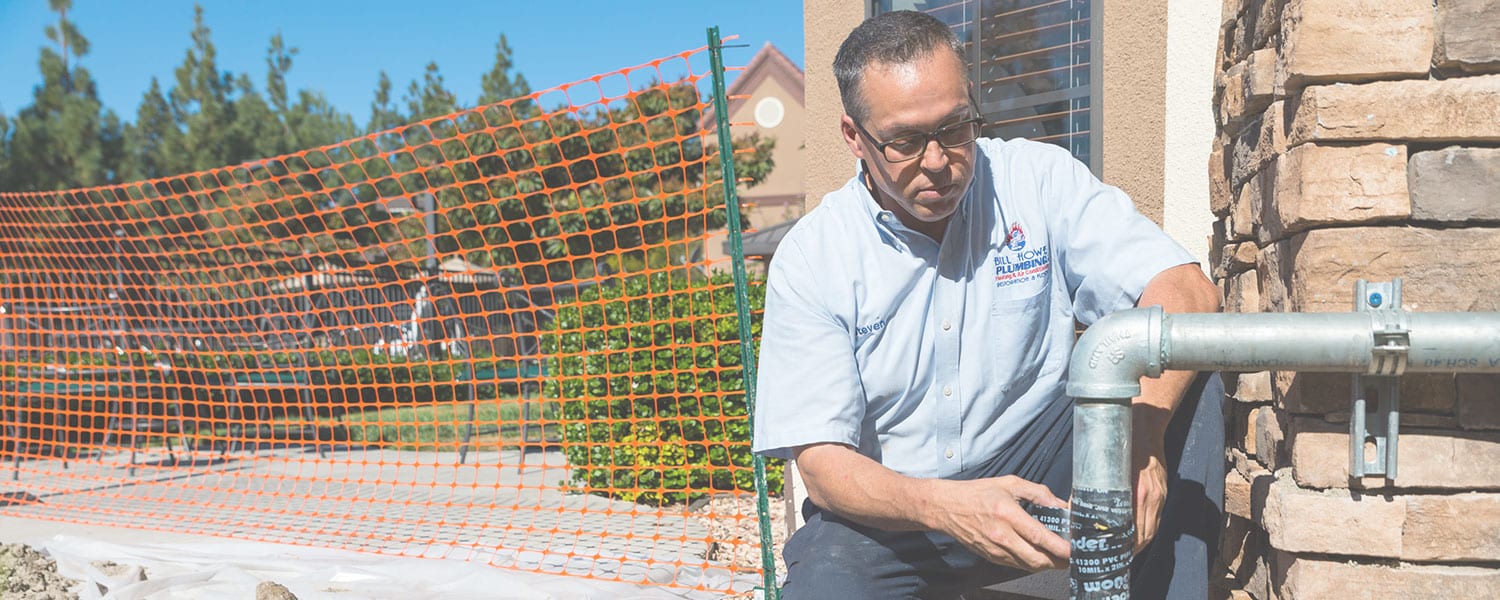Many San Diego homeowners will at one time or another face a common and damaging issue: slab leaks.
For homeowners lucky enough to have never experienced a slab leak, they are a source of frustration bringing new challenges. Imagine walking into the living room and discovering a mysterious wet spot.
Who do you call, your insurance or your plumber? Will your floors be torn up? Will it cause mold requiring water damage remediation and restoration of floors and walls? Will you experience future leaks?
Slab leaks are giant headaches and one of the most frustrating plumbing problems our homeowners face.
What Is a Slab Leak?
For homeowners who have a slab foundation, the possibility of experiencing a slab leak is pretty high.
But, what is a slab leak?
Slab leaks are not leaks in the foundation itself, but a leak in the copper water lines underneath the slab.
Copper is the best material for running water through your home but are also susceptible to leaks over time. They can develop pinhole leaks and/or deterioration over time.
What Causes Slab Leaks?
Slab leaks are caused by many things such as thermal expansion and high water pressure.
Thermal expansion is present in every home with plumbing and is one of the major causes of leaks in the copper pipe under the slab. Thermal expansion happens when water is continuously heated and cooled, as it is with traditional tank water heaters.
Pipes will expand and contract causing the copper piping to rub against the concrete slab and can be the source of a pinhole leak in the pipe. Part of Uniform Plumbing Code now requires an expansion tank on all water heaters to provide a place to release the pressure so it does not go back into the home. (we have a link to thermal expansion)
Fluctuations in water pressure can also be the cause of slab leaks as well as other leaking fixtures in the home. Some San Diego city water pressure comes in at over the recommended PSI. Homeowners can control water pressure coming into their home with a pressure regulator that adjusts the high pressure coming in from the city water. Water pressure in the home should be between 60 and 80 PSI. (we have links to water pressure)
Although detection of a slab leak can be immediate, they typically begin slowly with a small pinhole leak releasing water over time. When it is a slow leak, homeowners may not notice that anything is wrong until the symptoms begin to appear.
What Are The Signs of a Slab Leak?
Signs of a slab leak include:
- High water bills, either an immediate spike form the previous month or an increase over time.
- Sounds of running water when no fixtures are in use, or when the water is turned off to the house
- Warm spots on tile or wood floors, this happens especially in kitchens, bathrooms, and sometimes living rooms
- Wet spots on the carpet will appear in living rooms, bedrooms, carpeted bathrooms and even in closets
- Noticeable mildew and damp smells, or mold along baseboards
- Cracking or buckling in the foundation or along floors and walls
While many signs appear in obvious rooms with fixtures such as the kitchen or bathroom, copper pipes run throughout the foundation and slab leaks can happen anywhere
How are Slab Leaks Detected?

Detecting slab leaks require advanced sonar-like technology to accurately pinpoint the leak. This is important because direct repairs and rerouting solutions can change a great deal if the location is not precise. This can also change the entire scope of work based on which pipes are leaking and where the pipes are connected.
Using electronic leak location equipment, plumbers will trace the line and pinpoint the leak. The equipment allows for plumbers to hear the exact spot of the leak underneath the layers of flooring, carpeting, and the concrete foundation.
Plumbers are trained in how to accurately pinpoint the leak for repair. It is especially important to find the precise location; if the leak is slightly off,
Is San Diego at Risk for Slab Leaks?
San Diego homes are susceptible to slab leaks for a few reasons.
San Diego soil lacks minerals and nutrients and is made up of mostly heavy clay and salt making it corrosive to pipes in the ground. Many homes suffer exterior water leaks because as the pipes expand and contract, they agitate against the rocky soil and develop small pinholes and cracks over time.
The same thing happens in concrete slab foundations. Constant heating and cooling from water use and heating cause the pipes to move against the concrete. It is rare that pipes deteriorate from the inside out.
San Diego also has a high number of homes built on slab foundations in the 50s and 60s. Over time with shifting foundations and thermal expansion, slab leaks are likely.
How are Slab Leaks Repaired?
Once discovered, repairing a slab leak can be done in a number of ways.
Direct Repair
Direct repair of leaking pipes can be done with precise location of the leak using slab leak detection services. The plumber will go through the floor and cut out the leaking portion of the copper pipe and replace that section only.
With direct repair, it is important to know that if you have one slab leak, experiencing another is high. When plumbers replace only the affected section, warranties do not cover future leaks in different sections of the pipe. And, if a leak develops in one portion, the pipe is already in a condition to develop more leaks.
If homeowners have a post-tension slab foundation for earthquake safety, direct repair is not an option.
Direct slab leak repair also requires going through the floor. This option creates more work and costs more after repair to put floors, walls, and concrete back to pre-leak conditions.
One plus of a direct repair is that many insurance companies will cover the cost of the location service, and the cost to get to the leak and repair the damage and restoration process. They typically do not cover the actual repair cost to the plumber.
Bill Howe Restoration provides free estimates for performing finish work and can work directly with insurance agents.
Copper Reroute
Rerouting the pipe, either hot or cold lines, terminates the line in the slab and creates a new water line that will/can run through the walls, inside of the garage, or on the exterior of the home depending on the location of the leak and homeowner’s preferences.
Rerouting the copper water line will ensure no future slab leaks on the new exposed line.
Copper pipe reroutes will be more expensive than direct repair and insurance companies rarely cover reroute solutions.
Whole House Repipe
Repiping the whole home or line is the best solution for repairing the slab leak and preventing future slab leaks. The plumber can terminate the leaking line, or all lines, running underneath the slab foundation and put in all new copper water lines.
Whole home repiping is the most expensive repair option. The slab repiping process requires cutting into walls and possibly flooring and running all new copper lines, and copper is an expensive material.
Insurance does not cover whole home repiping as a solution to slab leaks.
Slab Leak Prevention
Although there are no guaranteed preventions for leaks in copper water lines under the slab foundation, there are some steps homeowners can take to lessen the likelihood of slab leaks and detect the signs early.
Regularly check the water pressure coming into the home from the city. If it is above 80 PSI, consider installing a pressure reducing valve. If you have one installed, consider inspecting it regularly to ensure it is in good working condition.
Install an expansion tank on your water heater (this is Uniform Plumbing Code and is required for all new water heater installations).
Perform regular checks on plumbing fixtures looking for signs of high water pressure. Fluctuations in pressure could cause small leaks and drips that will cause hard water buildup and corrosion on fixtures, water connection lines under the sinks and toilets and at water heater connections.
Monitor water usage against monthly water bills in order to detect any spikes in water bills versus water usage.
Wrapping Up
Although slab leaks are a potentially costly and time-consuming headache, they can be easily detected and repaired with the right knowledge and equipment. Homeowners can also take proactive steps to avoid undetected leaks that could cause more damage. When homeowners suspect or experience any signs of a slab leak, the first step is to call a professional plumber experienced in slab leak detection and repairs. They will be able to answer any questions about the process of finding the leak, making the best repair for the homeowner, and providing follow up assistance with any remediation or restoration from the slab leak damage and/or repairs.




